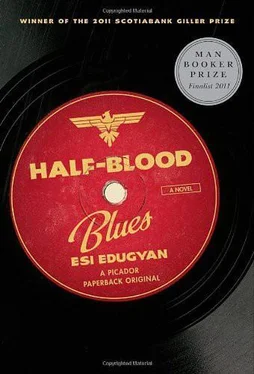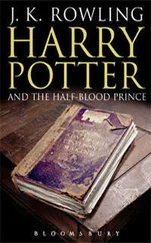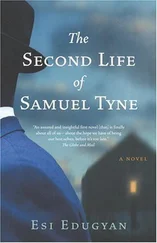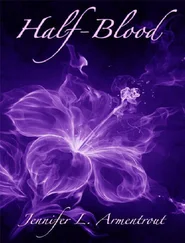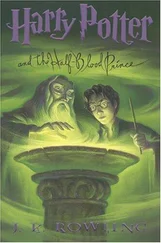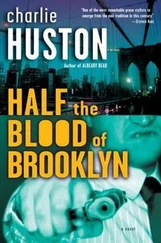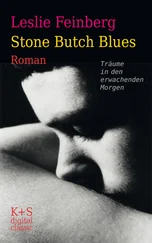‘You like Wagner?’ I said politely.
‘Good lord, no. Only according to my unhappy son.’
Ernst scowled. ‘You thought we’d wait around in Berlin like goddamn children .’
Now his father shifted in his chair, and there was something hardening in him, finally. I swallowed hard. His eyes was darkening. He said crisply, ‘I didn’t care in what manner you chose to wait. But yes, you were to wait in Berlin until I telephoned you.’
Ernst sort of lift up his face. ‘You mean until the papers were cleared.’
His father rolled the blue cigar smoke over his tongue, breathed it out in a long ribbon. The ash from the cigar dropped on the carpet again. Oh, hell , I thought. Don’t you damn well get up for it, Ernst. Jesus .
But Ernst sat fast, just flexing his jaw.
With a strange look on his face, almost an ironic smile, von Haselberg got to his feet. He slipped back behind the desk, withdrew a thick manila envelope from the top drawer. ‘All they need are your signatures,’ he said to me. ‘We took care of everything: photographs, documents, “sponsors”. In the case of the Germans, we even paid the Reich tax. You’re free to go to France.’ He fingered a monogrammed pen from his breast pocket, glanced across at his son. ‘I’ll even donate the pen, Mr Griffiths. As a patron.’
He come back across to me, handed me the envelope and the pen with a smile.
I held my breath. Holy hell. Just like that, here they was. Our lives in a unmarked envelope. I slipped the papers out, begun thumbing through them. There like to be thirty pages at least, all covered with tiny typed print. I ain’t sure what I looking for.
‘Mr Falk,’ von Haselberg said. ‘He’s got a brand new German passport.’
I glanced up, nodded.
‘Let me see them,’ said Ernst. He flipped through the several packets. He withdrew Fritz Bayer’s papers, withdrew Paul Ludwig Karl-Heinz Butterstein. ‘These two won’t be needed,’ he muttered.
‘Ah. Yes. Your Jewish pianist. I suppose events caught up with him.’
‘ Events .’ Ernst stared a long time at his father. ‘If you’d cleared these sooner, he’d still be alive.’
His father nodded. ‘Was he very talented?’
‘He was a person , Father. What does it matter?’
‘He was brilliant,’ I said angrily. ‘And he’s not dead.’
Ernst glanced at me. He passed the papers back. I counted out the three packets remaining, slid them into the envelope. Ernst was staring at his father, a tight, unreadable expression on his face.
‘Thank you,’ he said at last. ‘I know this isn’t easy for you.’
Von Haselberg laughed dryly, as if to brush the words under the rug. ‘Mr Griffiths,’ he said, standing. ‘A pleasure to meet you. I wish you great success in your music.’
‘Thank you.’
‘One more thing.’ He give me a careful look. ‘You’ll want to leave immediately. Do you understand?’
‘Okay. Sure.’
‘Ernst. Will you send in Rummel on your way out, please.’
The old man was already turning from us, sliding back behind his desk, taking out the sheets he’d locked away earlier. I glanced back, then left the room.
Ernst shut the door with a soft click.
In the hallway I turned, give him a fierce look. ‘Where the hell you goddamn papers?’ I hissed. ‘There ain’t nothin here for you.’
He exhaled softly, his shoulders buckling a little under his jacket. Then he caught his breath, a near noiseless sound, like he clearing his lungs.
‘Ernst?’
But I couldn’t barely look at him. In a delicate gesture, he buttoned his suit jacket, smoothed out his tie, like he packing everything in tight. His face went still as a cup of water.
‘I won’t be going with you,’ he said quietly.
‘What you sayin?’
‘I won’t be going with you,’ he said again, in the exact same tone.
I swallowed. My old brain was working slow. ‘What you mean? It Armstrong, buck. It Louis Armstrong .’
He just sort of wrinkled his brow, glanced away out the window. It was the closest I ever seen him to showing any strong emotion. And then I understood.
‘Shit. You known bout this. This how you got him to help. You agreed to stay so we could get out.’
He shook his head. ‘Don’t be ridiculous.’
But it was like he wasn’t able to think up any alternative lie. He just stood there with his head down, his long pale fingers hanging empty. At last he give me a dim smile. ‘Look at who I am, Sid. I’ll be fine here. I will.’
‘Fine, hell.’ I felt this damn lump in my throat.
‘There are maps under the front seat of the Horch, as well as an envelope full of francs — enough to last a long time if you’re wise with it. Also all the details about how to reach Armstrong in Montmartre.’
‘We ain’t goin without you. Jesus, Ernst.’
‘Stick to the back roads. You’ll see on the map where to cross. Be careful.’
I shook my head. ‘There won’t be none of us left.’ I thought maybe I going to start crying right there. I bit my tongue hard.
And so we left him.
Pulled the long, ghostly nose of the Horch round on the paving stones, needled out through the gates, turned into the oncoming darkness. The headlights cut through the dusk. We drove west in silence with a weight in our chests, all of us brooding, mute with our own denials. Deep into the night. We ain’t hardly stopped, except to refuel from the extra gas tanks we packed in with us, to slip away into the grasses to relieve ourselves.
The sun was still low on the horizon, the early shadows long over the uneven asphalt, when we seen the border crossing a couple miles ahead.
I thought Chip and the kid was still asleep, when all a sudden the kid cleared his throat and said, ‘He ain’t comin. For real he ain’t comin.’
Chip turned round, studied the kid, but ain’t said nothing.
The yellow countryside was unravelling, and far ahead in the cool morning light we seen the dark forests of France. We was passing the tall signs printed in black paint, the Achtung and Achtung and Achtung, each underwritten with instructions I ain’t read. Then I seen them sawhorses strung with barbed wire, and I kicked at the brake. The car jolted and lurched, slowing down.
‘Shit, buck,’ muttered Chip. He run his hands over his face, yawned.
I tapped the gas again, and with the smoothness of a thoroughbred, the Horch passed between the sawhorses, winding slowly. Through the dusty windscreen I seen two armed Boots standing in a guard hut off to the left, their machine guns trained on us. Their murky green uniforms clean-collared and pressed, like they just come on duty.
‘Shit,’ Hiero whispered. His eyes was real small.
‘Don’t you say nothin,’ said Chip. ‘You hear me? Nothin.’
My eyes was fixed on a armed Boot who come out from a sheltered alcove with his palm up. A rifle was looped over his shoulder. I tried to make my damn face neutral, unassuming, but my heart was clattering away in my chest. I come to a careful stop.
That Boot was standing between two sawhorses, and he stepped forward then, approaching the auto with a frown.
My knuckles was going white on the wheel. I was afraid to let go, afraid my hands just start trembling away. I cleared my throat. ‘Give me you papers,’ I whispered, my voice all high and crackling like a fire.
I leaned forward, rolled down the window. The late summer air smelled of dirt and smoke.
The Boot’s green fatigues was reflected in the Horch’s chrome. I sort of squinted up at him, nodding. He was young, brown-haired, tanned, his raw lips chapped from too much sun. There was a hooded look to his eyes.
‘Papers,’ he said brusquely.
Читать дальше
